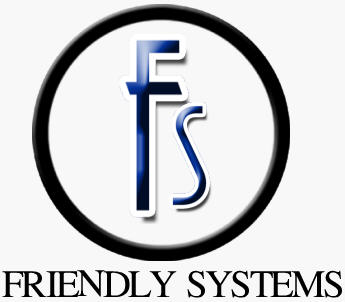Newbie Purchasing
Computer
By Tony Angiola
Field Technician
Newbie Purchasing Computer
What to Do and Why
Buying a computer is just simply easier for some than it is for others. Those who've purchased and
worked on a PC in the past already have an idea of what they require in a new machine. But those who are new to
this world could get confused in the many of choices that are out today.
The quick answer to "What should I buy?" and what is "The best." Of course that answer is very
subjective because "the best" to one individual is really different to another. Our definition of "the best" is
the quickest and the largest, but even that can be confusing to the computer newbie. Here's a short list of what
the novice should do and why.
1. Buy a computer that includes core peripherals. Every machine can be
simplified down into four main components: CPU, LCD screen or monitor, keyboard, and mouse. For the novice, it's
best to buy a computer that has all of these components included so that when it's brought home, assembling the
machine is an easy process of plugging components in where they belong. Leave the individual
purchases of these components for those who have more experience.
2. Do you know what you'll use the computer for? If you want to use your
computer for surfing the web, composing email, or performing easy word-processing or spreadsheet work, a machine
with the core components that we just described should suffice. If you want to use a computer to help with a
career in multimedia however, you will need to accessorize your computer with a scanner, printer, digital
camera, tablet, or web camera for example. If you want a computer to help with a career in music, you may want
to consider a MAC and require a good microphone and set of speakers.
3. Design a computer within your budget and see if you can put together
a decent machine. How much can you afford to spend on a new computer? Since the prices of computers are
decreasing, they can still be a large price especially if you require additional peripherals described above. In
addition, you'll need to consider the price for maintenance, servicing, and insuring.

4. Begin by comparison shopping and look for the machine with the
fastest clock speed (processor), RAM (memory) and largest hard drive (long term storage). Even if you think that
you'll never require the speed, space, or storage available on the market today, it's important to have in the
long run because you don't want it to be out of date in a year. Also, software seems to
always require more as we move into the future of software development. Software will always
require more of everything (Speed, memory and storage). Having such a large reserve will cut down on costs when
the time comes to upgrade for more than what you may settle for in a computer that offers
less. It's likely that by the time you exhaust your hardware and need a faster processor or
memory you will be ready for a new computer. The one thing that is easy
to expand on is hard drive storage since you can buy USB drives for under $100 that are relatively very large
drives and they just plug right in to your USB port.
5. Buy the better-known brands. Purchasing lesser-known brands can cost
you in the end (lack of reliability, errors, crashing, and incompatibility with programs). This is again, an
adventure for those who have more experience with computers. However, those
better-known brands may be a tad bit pricier, the PC novice will appreciate the comfort in purchasing a machine
from a company that has a long history of selling quality stuff, and that has the money and reputation for
fulfilling returns, trades, servicing, and warranties.
6. Choose a company. Having an idea of what you want in a computer and
what kind of machine that you want, your only objective left is to choose the place in which you want to buy it.
There are a number of choices available including computer store outlets, online stores, auction sites, used
computer stores, or your friendly neighborhood yard sale. For the beginner, we recommend purchasing a computer
from a local computer shop. In a local computer shop, you have the opportunity to see the machine you’re
interested in and ask questions. It’s a lot easier to
use a warranty in a local computer shop. You can also do a
return or get service a lot easier from the local computer shop.
These are just a few suggestions to give the computer newbie a great
jump in selecting a good computer for the first time and they apply to either Windows computers or Apple
Macintosh computers. After making these decisions and then selecting one that suits your requirements, you
can then venture into the fascinating world of software - a world that is just as wild as the world of
hardware!
Newbie Purchasing Computer
Check out Web Watcher :

| 
